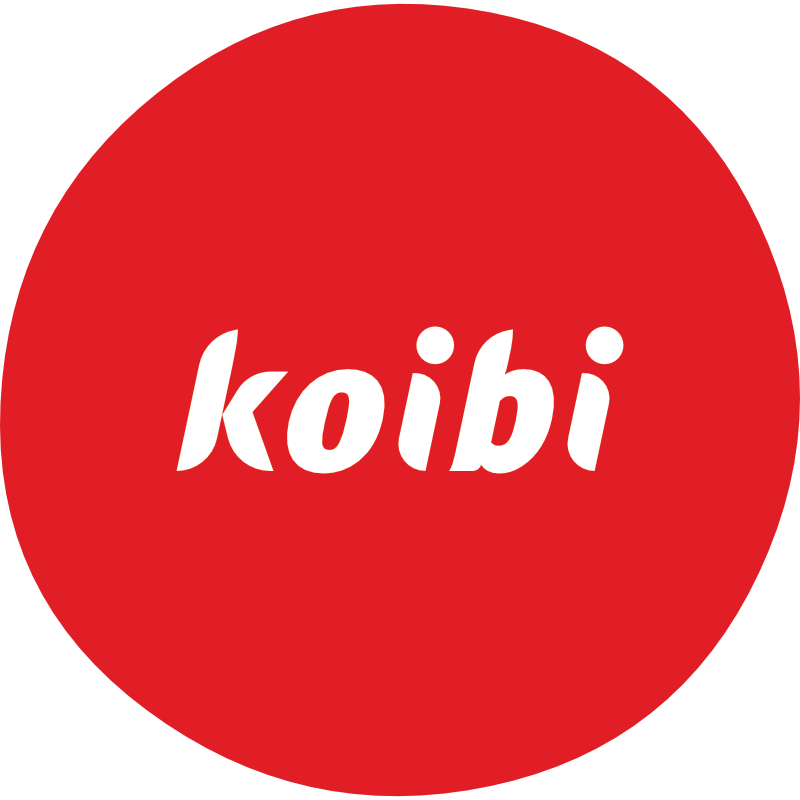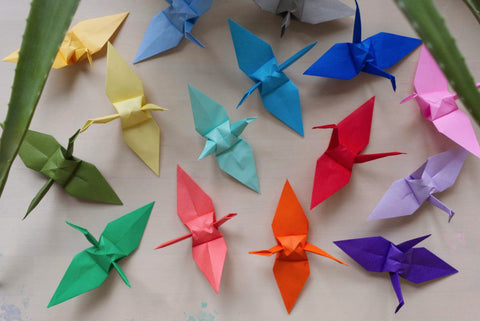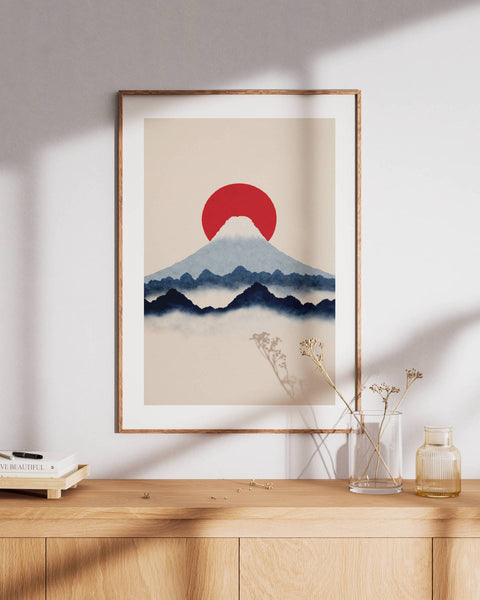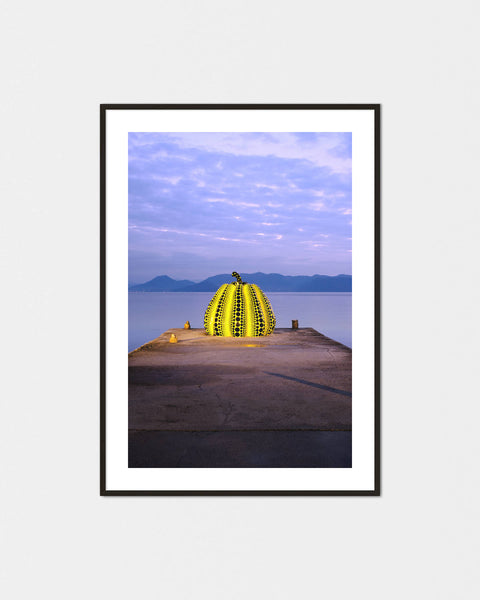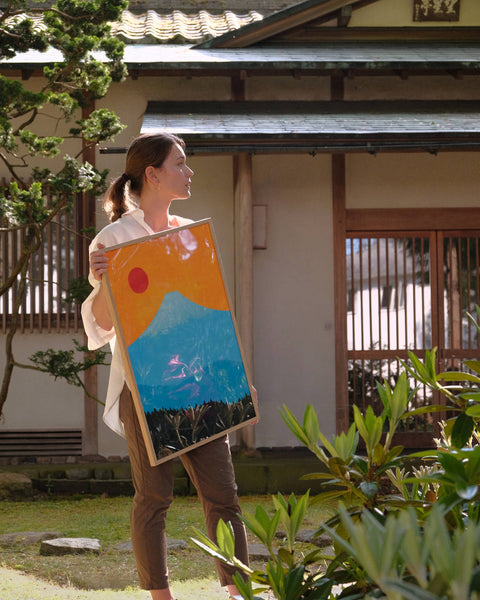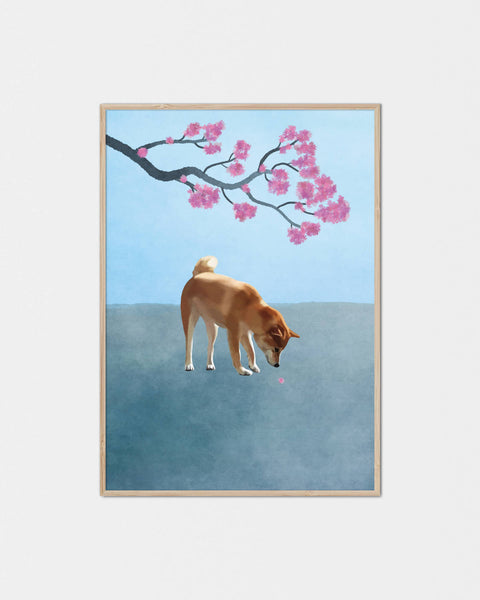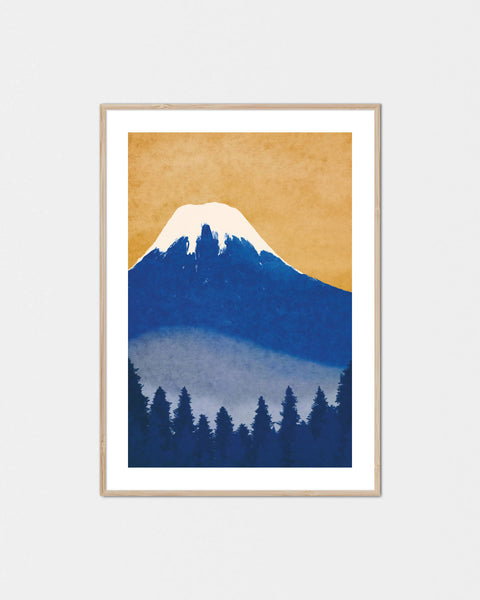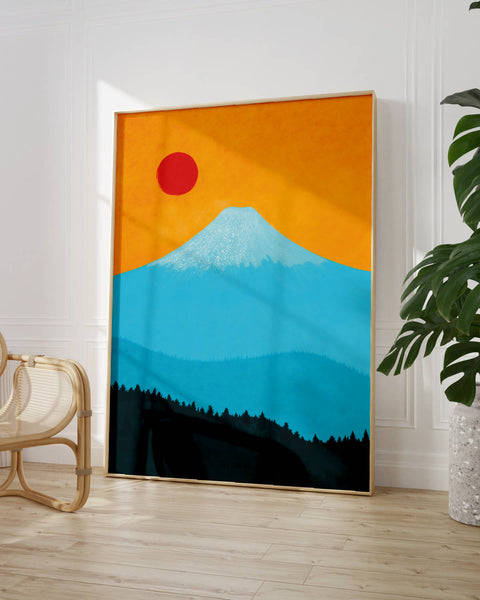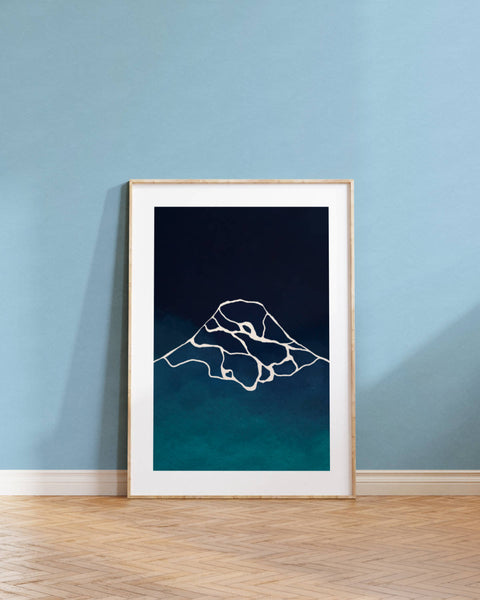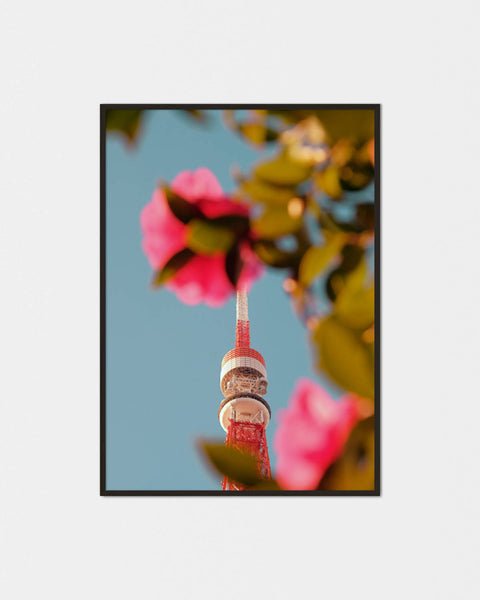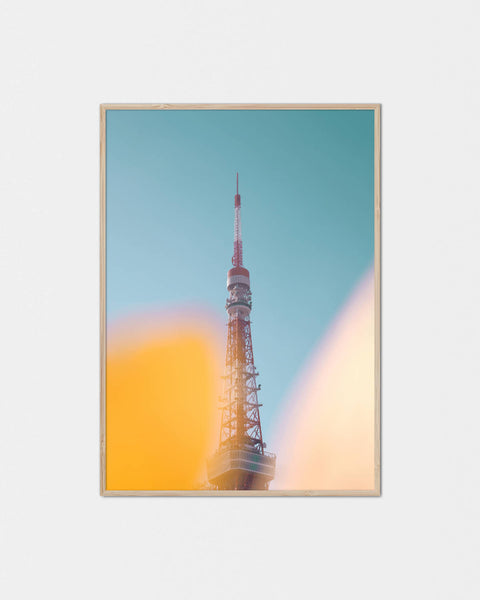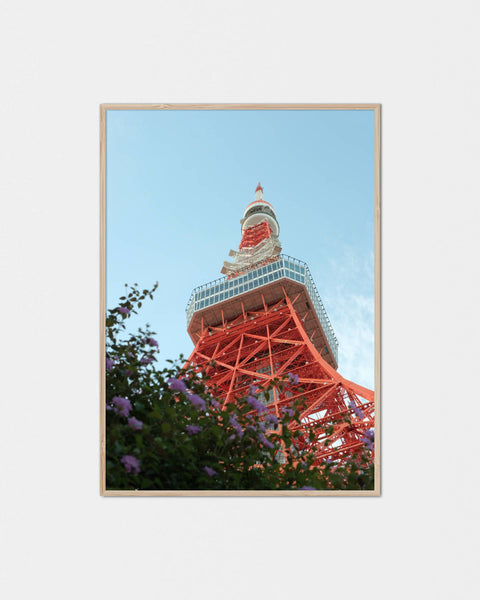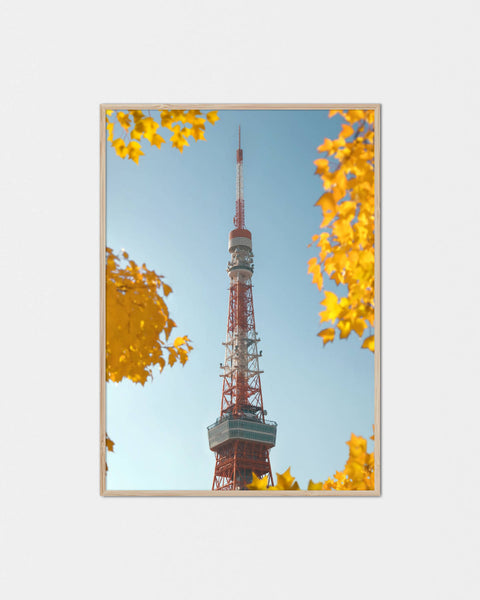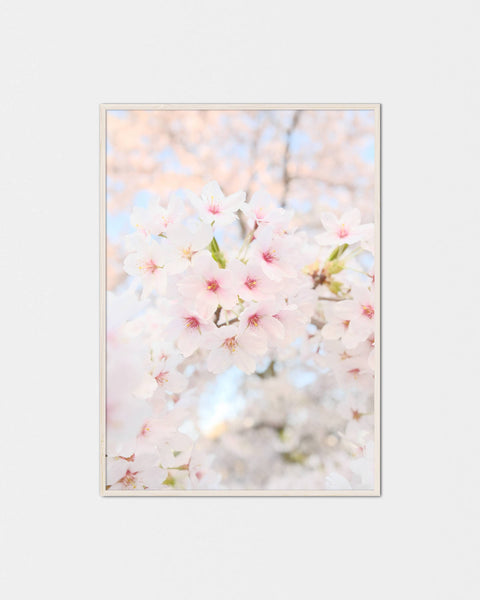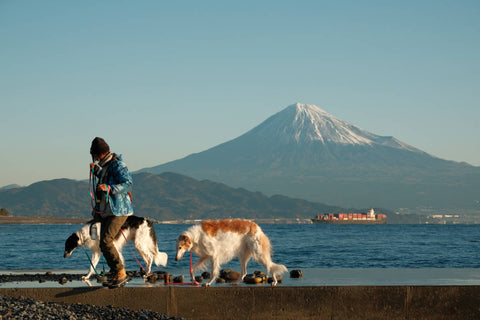Folding paper into various shapes is a lot of fun—and for everyone
Origami (折り紙 in kanji) means 'folding paper' but translated better as the art of paper folding. With a single sheet of paper folded with your hands, one can create beautiful things and enjoy the power of origami. In addition to being an art form for creatives, origami has strong links to the Japanese culture, where many customs and beliefs are embedded.
About paper folding in Japan and the development of origami
We know that paper came to Japan through China. Paper was a medium primarily for writings by monks. When it comes to the art of folding paper, it's not all wrong to say that its roots can be found in the traditions and techniques as developed in Japan.
In essence, it was the quality of the paper that cleared the way for origami to blossom. The Japanese invented a type of paper that was both thin and strong known as Washi (和紙). With this type of paper, it became possible to fold different shapes by a single sheet. Much like today, it's no surprise that the Japanese were gifted when it came to being innovative and possessing the techniques to make something unique while thinking much about the quality.
Folding is more than the art of it
There is no doubt that Japanese folding culture has its influence on the foundation of origami. In Japan, for example, gifts typically come wrapped, and depending on the occasion, there are guidelines as to how to fold correctly. Wedding gifts in one way, funerals gifts in another. In addition to folding customs in Japan, kimonos are folded rather than hung when not being worn. Futons as well are folded and hidden away because space is precious. Folding things becomes a philosophy. The more you start to practice it, the sooner you will see the beauty of it.
In addition to being visually appealing, origami is an excellent way to show you care for others with the effort behind what you've created. While studying in Denmark, I had a part-time job at the flagship store Royal Copenhagen—a historical danish porcelain company. Besides selling porcelain to the customers, the job consisted of gift wrapping with special consideration. The frequent visiting Japanese customers and I would often cross paths in the store, perhaps because I understood a bit of Japanese and had a genuine interest in talking with them. During my time living in Japan, I had seen the traditions of gift wrapping and felt pressured to live up to their standards. Thus, I always made sure to do my best. Regardless of my not always perfect result, they were always nice to me and appreciated my effort to make it presentable. In summary, origami is a path to making people happy and showing gratitude.
The story of the crane
It has long been the practice of the Japanese to express wishes and prayers on paper. When it comes to origami, it became natural to do the same by writing inside and sending it away to become realized. If someone could help bring your wish to the sky, who should it be? A sacred bird would perhaps be an ideal candidate as a promising messenger.
The crane (鶴, 'tsuru' in Japanese) is associated with longevity and good fortune. In legends, the crane could live for 1000 years, and for that reason, the Shogun would eat the bird to wish for a good year. For obvious reasons, not everyone could have a crane on their dinner table, so they would fold paper cranes (折り鶴, 'oritsuri') instead and achieve the same result.
As part of the Japanese culture, origami has its roots in rituals and ceremonial occasions where butterflies and cranes, in particular, were the most popular motives. To this day, the crane remains the most folded figure and continues to be popular in addition to other reasons.
The folded paper crane is often folded by the thousand (千羽鶴, 'senbazuru') and given to someone who is sick with a wish to recover, as well as a symbol of peace. There is a story known in Japan and around the world of a young girl named Sadako Sasaki, who became a victim of the atomic bombings of world war II in Hiroshima. She became hospitalized after being diagnosed with leukemia at the age of 9 and went on a mission to complete 'senbazuru' to become healthy and show her passion for life. Tragically, she didn't make it and died at the hospital. Her friends and people were deeply touched by her story and continued to fold cranes to honor her and wish her good luck for the future.
Every year, tons of folded paper cranes are sent to Hiroshima Peace Memorial Museum and Nagasaki Atomic Bomb Museum by the Japanese and people all over the planet to pray for world peace. I can personally say that they make an extraordinary display with all of the different color variations. If you get the chance to go to either Hiroshima or Nagasaki, make sure to visit the memorial museums where you will be touched to your heart when seeing the impressive decorations by the strings of thousand. The story of Sadako is indeed sad, but her story has become immortal and inspires us all to appreciate life and remember the importance of peace.
The benefits of origami are universal
People of all ages love origami, young or old, rich or poor. Everyone understands it, and it doesn't matter which language you speak or where you come from—origami is heartful and universal. The benefits of doing origami include the joy of creating something with your hands, increasing concentration, and sharing it with others. There is something magical about being focused on the activity of origami. It gives a therapeutic feeling, both to the soul and mind.
The act of folding a sheet of paper has so much cultural and historical significance. Because of that alone, you should be enthusiastic about getting started if you haven't already done so. When you dedicate a little of your time to folding origami, you will feel relaxed and happy. And there is no limit to the sophistication of origami creations, so feel free to bring out the creative side of you. Whether you will be visiting Japan or staying at home, I hope you will take the opportunity to take on the art of origami and enjoy folding your way to a long and peaceful life.
